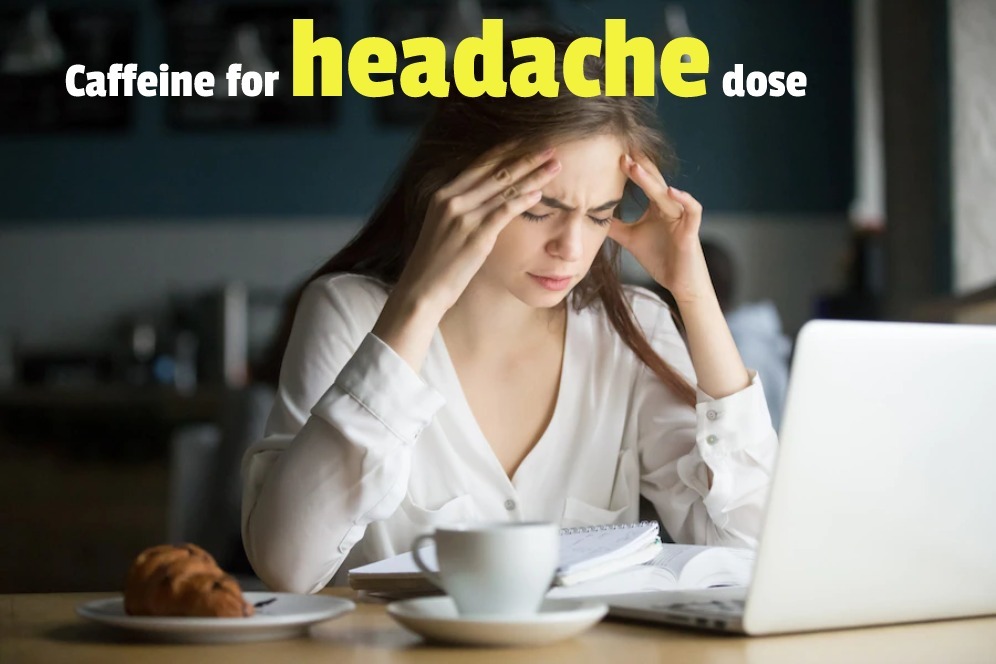The Amazing Effects Of Coffee On Reducing Migraine Pains – Headache (Proper Dosage Amount)

As you are aware, and as has been highlighted several times in the media and periodicals, coffee has become more prevalent in recent years, and most people have adopted it as a regular beverage.
This drink can be beneficial to the body due to its advantages, and because of its caffeine content, it can serve as an excellent source of energy for a person and even improve their mood.
The most pressing question on the minds of coffee enthusiasts:
- Could it be whether or not coffee has a migraine-inducing impact on the body?
- Does it make sense for those who suffer from migraines to consume coffee?
These are questions that every coffee enthusiast should be able to answer with ease to appreciate their cup of coffee fully.
In light of the significance of this topic and its close connection to physical health, we have chosen to explore it further in this post.
We encourage you to follow us throughout this essay and pay great attention to the points we make.
People are suffering from a wide range of physical and mental ailments these days, and they are suffering due to them.
Firstly, let us examine the phenomenon of migraine in more detail:
Contents
What is a migraine?
We can name the grueling headaches, referred to as migraines in medical terminology, as one of the situations that people face these unpleasant days.
In this case, the acute throbbing pain or the pulsing feeling happens on one side of the head, called a tension headache. Nausea, vomiting, and acute sensitivity to light and sound are symptoms of this condition.
There is no established scientific origin for migraines; nonetheless, it is believed to be the consequence of aberrant brain activity that momentarily disrupts nerve impulses, neurotransmitters, and blood vessels in the brain.
So far, we’ve learned a bit about what migraine is and how it is caused, but we want to learn more about what might contribute to it. Attendees? Let’s get this party started!
What is the source of migraine threats?
As previously stated in the preceding section, migraine is a symptom of intense headaches that may linger for hours or even days, making a person’s life unbearably tricky.
A convincing rationale for why this occurs has not yet been scientifically verified. However, several broad factors may be considered:
- Tension
- Dietary modifications for sleep dehydration
- scents that are an overpowering bright lighting
- Changes in the weather
- Hormones
Let’s assume that our description of migraine has satisfied your curiosity, and let’s return to the topic of the relationship between migraine and coffee.
So, do you believe that coffee and caffeine might be beneficial or detrimental for migraine sufferers?
The effects of coffee and caffeine on migraine
Can caffeine help to reduce the severity of migraine attacks?
Caffeine is the primary active ingredient in a variety of medications used to treat migraines, which are prescribed to patients because they influence the pain signals in the brain via their actions on adenosine receptors, as we discussed in the previous section. It helps to alleviate the sensation of pain to some degree.
Research into the relationship between caffeine and migraines is still ongoing. Still, it is believed that because adenosine is involved in the physiological processes associated with migraine attacks, caffeine may be able to alleviate some of the pain associated with migraine attacks. Reduce the number of adenosine receptors.
The quantity of caffeine ingested and the frequency with which it is consumed, on the other hand, have a significant impact on its positive effects.
Can caffeine help to increase the severity of migraine attacks?
We concluded that migraine-specific drugs include caffeine and can help alleviate its discomfort in the last part. However, it is essential to remember that an overdose may have the opposite effect.
These side effects include drug overdose, which happens when a person takes more than average amounts of migraine drugs over a month (many of which contain caffeine). If they are used regularly, the person’s brain becomes reliant on the pills. In addition, its efficacy is diminished.
Furthermore, research has shown that excessive caffeine intake is a risk factor for chronic migraines, which are headaches that may endure for several days a month and last for many weeks.
Researchers in this area have discovered that excessive intake of caffeinated coffee may have harmful physiological consequences in two ways:
- The medication negatively affects magnesium absorption as a valuable nutrient for chronic pain, such as migraines.
- Excessive water loss due to frequent urination is a dependable source of migraine triggers that have been identified.
Consequently, although minor quantities of caffeine in your headache medicine or your coffee cup may be beneficial, taking excessive levels of caffeine might be detrimental.
Depending on the quantity consumed, we have recognized that coffee may be therapeutic or detrimental to migraine sufferers. That intake must be moderated to be effective.
Now the issue comes as to how much-caffeinated coffee should be consumed regularly?
Let’s see how it goes!
Caffeine dosage for headache relief: how much should you take?
According to specialists in this sector, caffeine must be used in moderation. It is also feasible to avoid any potential problems by practicing moderation.
Rather than 400 mg of caffeine per day, the recommended daily intake is less than 400 mg. As for coffee, it should be noted that it is around two to four cups, depending on how long it is brewed and how strong the coffee you drink.
You will find the following information on the caffeine content of various coffees:
- Starbucks’ Blonde Roast coffee (small) – 270 mg
- Regular drip coffee – 106-164 mg
- Red bull (8-ounce can) – 80 mg
- Instant coffee – 47-68 mg
- Brewed black tea (average cup) – 67 mg
- Coke (12-ounce can) – 34 mg
- Starbucks decaffeinated espresso – 8 mg
- Starbucks decaf coffee (8-ounce) – 6.9 mg
Overall, it may be said…
All of the information in this post was written for you, my dear friend, who suffers from migraines and, on the other side, enjoys drinking coffee for its caffeine content.
As a result of the data we have provided you, we urge you to learn to minimize your coffee intake as much as possible and avoid it altogether.
Now that you’ve admitted that you can’t live without coffee, at the absolute least, make sure that your intake is consistent and does not vary excessively.
However, if you are resolved to go, proceed with caution and carefully, taking each step.
We hope you find the information beneficial and that you can regulate your migraine and live a peaceful life as a result of it.






